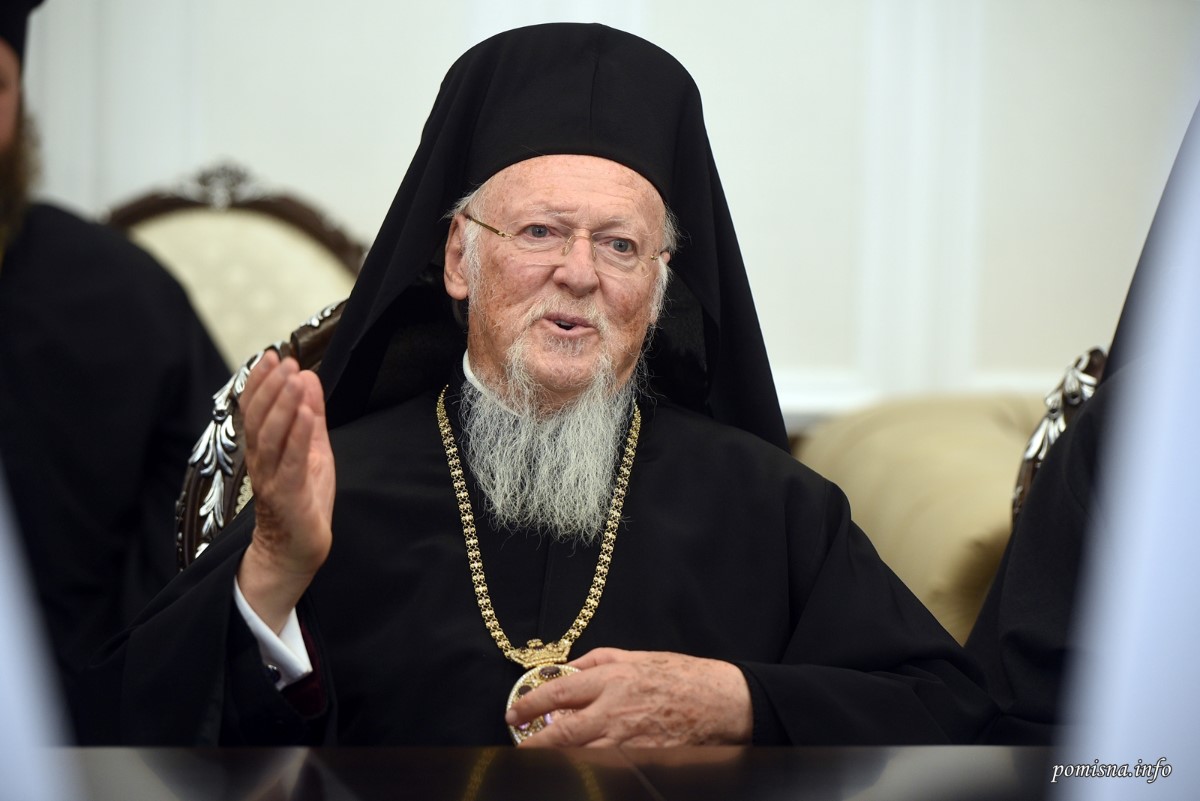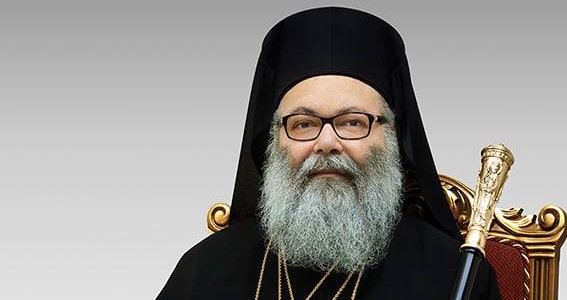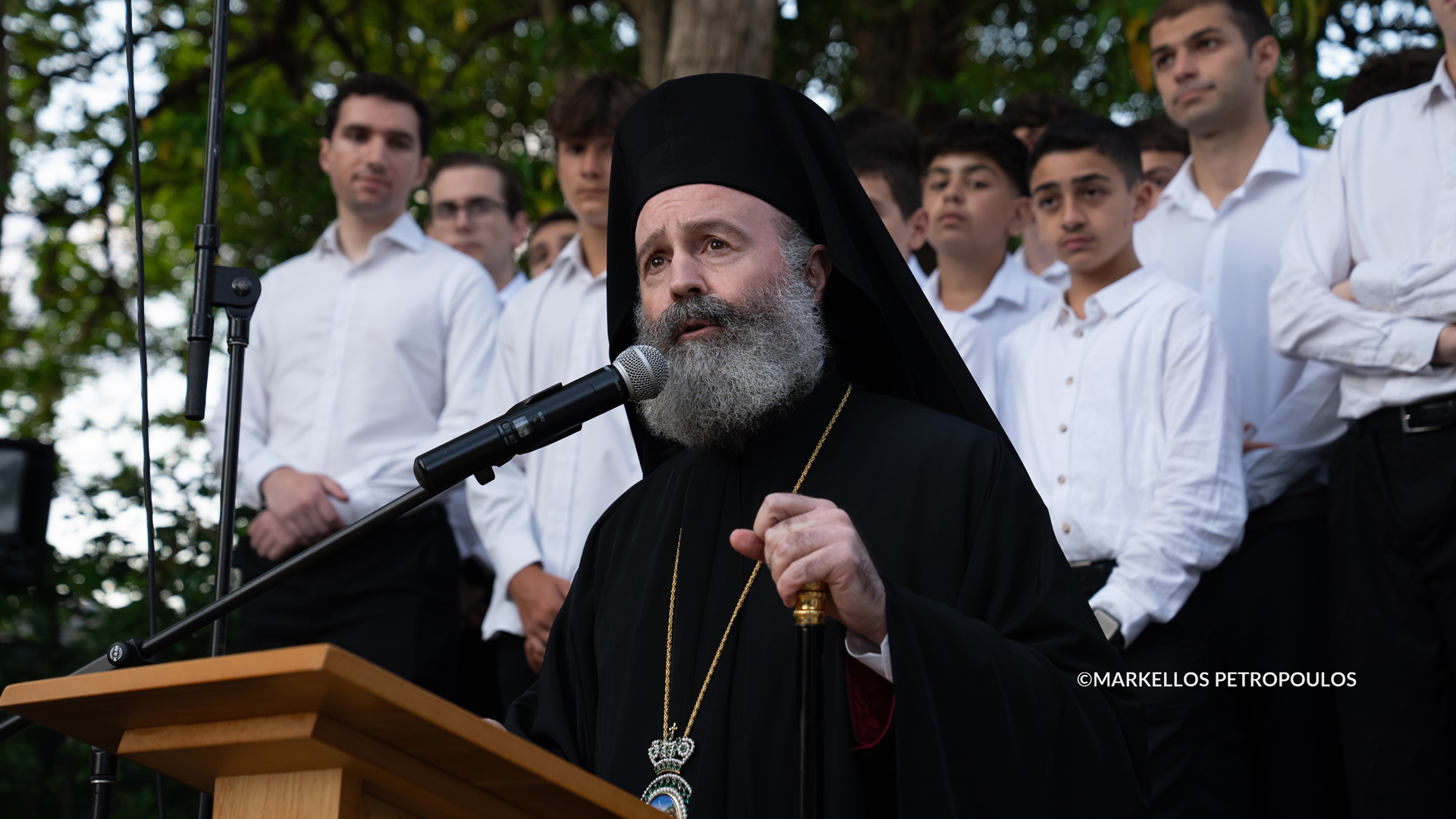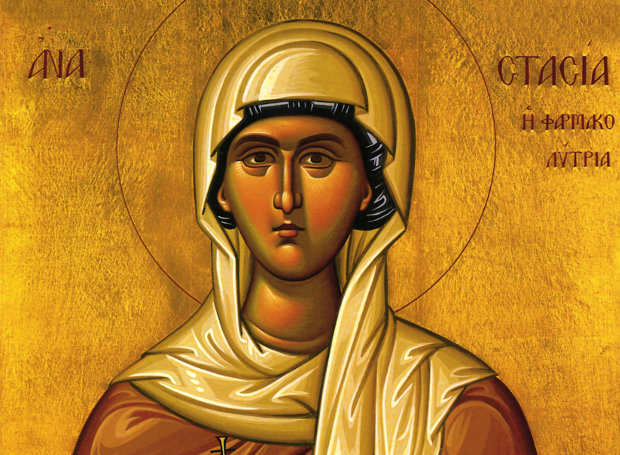Ecumenical Patriarch Bartholomew: The Church encourages young people to cultivate “spiritual intelligence”


His All-Holiness Ecumenical Patriarch Bartholomew formally inaugurated the 4th International Ecological Well-Being Conference, titled “Artificial Intelligence, Technoethics, and Youth,” on Friday, 20 December 2024, at the Marasleio School. The conference, organised by the Laboratory of Applied Philosophy of the Department of Philosophy at the National and Kapodistrian University of Athens, is held under the auspices of the Ecumenical Patriarchate.
In his speech, the Ecumenical Patriarch highlighted that the topic of artificial intelligence had been thoroughly examined during the recent Synaxis of the Hierarchy of the Ecumenical Throne, where Archbishop Makarios of Australia delivered a highly insightful presentation. He also referenced the recent scientific conference organized by the Synodal Committee on Bioethics of the Ecumenical Patriarchate, as well as the significant conference hosted by the Theological School of Athens, both of which contributed to a deeper understanding of this critical issue.
As the Ecumenical Patriarch stated, this demonstrates that “the Orthodox Church and its theology are not indifferent to the modern world, cultural and scientific developments, social events, or the historical conditions shaping the lives of the faithful.”
The Ecumenical Patriarch, among other things, pointed out:
“The Orthodox tradition is an inexhaustible source of vital principles and truths for humanity and the world. Naturally, the remarkable theological texts do not contain ready-made answers to address contemporary problems. Instead, they require study and serious theological effort to articulate the proposal of life, freedom, and the universal values of Orthodoxy. For this reason, we are pleased to see theology engaging with the topic of ‘artificial intelligence.’”
It reaffirmed its role as a “theology of dialogue” and highlighted the sanctity of the human person and the commitment to its full respect. Theology will persist in exploring the sources and monuments of our faith, drawing inspiration and nourishment from the Truth, which for Christians is not merely an “idea” but a “person”—the incarnate Word of God. He is both the foundation and the horizon of our freedom, encompassing its worldly expression and eternal dimension.
He will address modern humanity, conveying the salvific Gospel of Christ in a timely manner, always in relation to the central questions of human existence, the signs of the times, and humanity’s engagement with the culture and civilizations of our world.
In light of the remarkable advancements in science and technology, we affirm our conviction that these achievements, when used responsibly and ethically, can contribute to genuine progress without compromising fundamental moral and spiritual principles and values. We do not regard the conflict between faith and science as inevitable.
Such a perspective arises from a misunderstanding of the essence and purpose of these two profound spiritual forces, which together serve humanity. The Holy and Great Council of the Orthodox Church (Crete 2016) underscored this harmony, stating that “for the Orthodox Church, the capacity for scientific research of the world is a God-given gift to man” (The Mission of the Orthodox Church in the Modern World, VI, § 11).”
Elsewhere in his speech, the Ecumenical Patriarch stressed:
“Your conference – our conference – also focuses on young people, whose lives will inevitably unfold within the environment shaped by the dynamic integration of artificial intelligence into our daily existence.
Obviously, the new generation is neither technophobic nor indifferent to new technologies, as these are integral to the core of their lives. The Church, while advocating for the responsible use of artificial intelligence, encourages young people to cultivate “spiritual intelligence” by exploring and embracing the invaluable spiritual and cultural treasures of our Orthodox Tradition. This aligns with the invitation extended to them by the Council of Crete in its Message: “The Orthodox Church addresses young people, who seek a life of fullness enriched by freedom, justice, creativity, and love.
It invites them to consciously connect with the Church of Christ, who is the Truth and Life, and to actively engage with the ecclesiastical body, bringing their energy, concerns, aspirations, and expectations. Young people are not merely the future of the Church; they are its dynamic and creative presence, both locally and globally” (§ 11).
Childhood and adolescence are the most formative stages of life, offering the ideal opportunity to instill in young minds and hearts a profound respect for the sanctity and beauty of the human person, as well as a deep concern for the integrity of creation.
We humbly acknowledge that, more often than not, young people teach us through their sensitivities, ideas, and visions. They display a greater concern than adults for the protection of the natural environment, the pursuit of justice, the promotion of peace, and the cultivation of a culture of solidarity. In this sense, many young people today, even if not actively engaged in the liturgical life of the Church, serve as carriers, advocates, and practitioners of its communal and social ethos.”
Previously, Professor Evangelos Protopapadakis, Director of the Laboratory of Applied Philosophy at the National and Kapodistrian University of Athens and the MSc program Animals: Ethics, Law, Welfare, addressed the audience. Additionally, during the inaugural session, Archon Konstantinos Delikostantis, Professor Emeritus of the National and Kapodistrian University of Athens, delivered a speech.
The inaugural meeting was attended by His Eminence Metropolitan Kyrillos of Imbros and Tenedos, clergy, Consul Athanasia Iliaki, representative of the Consul General of Greece in Constantinople, university professors and participants in the Conference.
The speech of the Ecumenical Patriarch:




